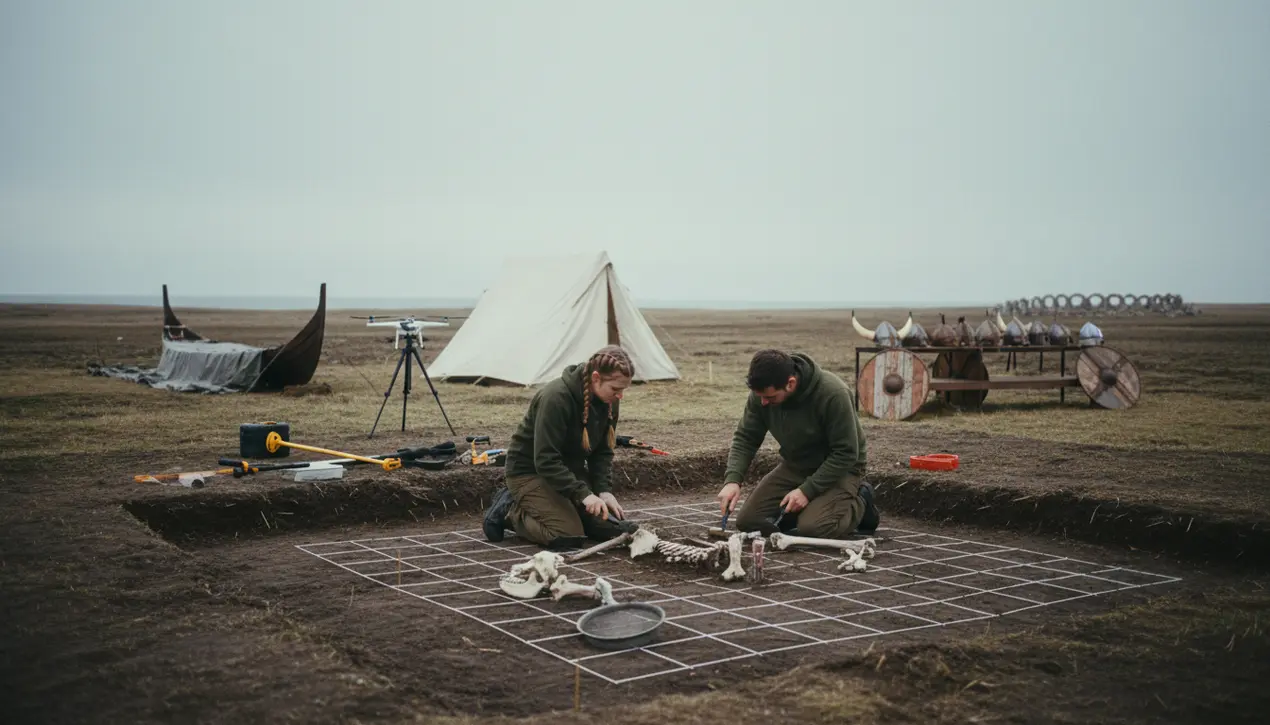
SciencearchaeologyAncient Civilizations
Debunking the Viking Myth: Scholars Uncover a More Complex Reality
AN
Andrew Blake
8 hours ago7 min read1 comments
The popular image of the Viking—a horn-helmeted berserker immortalized in modern media—is being systematically dismantled by scholars. New research reveals that our understanding has been shaped by biased medieval Christian chroniclers, who painted them as pagan savages, and later by Romantic nationalists, who reimagined them as noble proto-Germanic heroes.Archaeological evidence from runestones, sagas, and settlement digs now paints a far more nuanced picture. The iconic horned helmet, for instance, is a complete fiction, a 19th-century opera costume designer's fantasy.Furthermore, the term 'Viking' was likely a job description for someone on a raid, not an ethnic identity for all Norse people, most of whom were farmers, traders, and craftsmen. This myth-making was later co-opted and intensified by 20th-century Nazi ideology, which promoted a sanitized, racially pure version of the Viking.Today, pop culture continues to repackage these ideas, blending scant historical fact with fantasy in shows like 'Vikings. ' Leading scholars, such as Neil Price at the University of Uppsala, are using forensic archaeology to correct the record, uncovering evidence of significant roles for women, including in warrior burials previously assumed to be male.This revisionism has profound consequences, highlighting how the past is used to legitimize present ideologies, as seen when white supremacist groups appropriate Norse symbols. Unraveling the Viking myth is therefore not just academic; it is an essential act of cultural hygiene, separating a complex human history from the dangerous fantasies superimposed upon it.
#featured
#Vikings
#Norse mythology
#historical reinterpretation
#medieval sources
#pop culture
#neo-paganism
#nationalism
Stay Informed. Act Smarter.
Get weekly highlights, major headlines, and expert insights — then put your knowledge to work in our live prediction markets.
Related News
Comments
Loading comments...
© 2025 Outpoll Service LTD. All rights reserved.